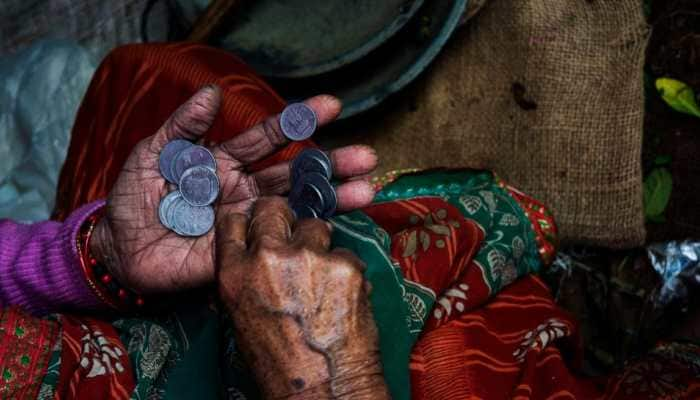Borrowings by Tamil Nadu govt well within limits, says state's Finance Secy S Krishnan
Amid Opposition criticism of Tamil Nadu's overall estimated debt of Rs 5.70 lakh crore with the government intending to borrow Rs 84,686 crore, the state Finance Secretary S Krishnan said it was within the 15th Finance Commission limits, unlike some states which have raised more funds 'breaching' the ceiling.
- Borrowings by the TN govt were well within limits prescribed by the Finance Commission, state Finance Secretary S Krishnan said on Tuesday.
- He also said that Tamil Nadu's share of taxes on petroleum products has fallen since the introduction of cess by the Centre.
Trending Photos
) Tamil Nadu Deputy CM and Finance Minister O Panneerselvam presents the interim budget in the assembly (PTI photo)
Tamil Nadu Deputy CM and Finance Minister O Panneerselvam presents the interim budget in the assembly (PTI photo) Chennai: Borrowings by the Tamil Nadu government were well within limits prescribed by the Finance Commission, state Finance Secretary S Krishnan said on Tuesday.
Addressing the post-budget press conference, he also said Tamil Nadu's share of taxes on petroleum products has fallen since the introduction of cess by the Centre.
Amid Opposition criticism of the state's overall estimated debt of Rs 5.70 lakh crore with the government intending to borrow Rs 84,686 crore, the official said it was within the 15th Finance Commission limits, unlike some states which have raised more funds 'breaching' the ceiling.
Krishnan said the Centre has allowed states to borrow up to 5 per cent of their gross state domestic product (GSDP) as against the earlier 3 per cent limit in view of the COVID-19 pandemic.
"The increase in the borrowings was in the wake of the pandemic. However for 2021-22, it has been revised to 4 per cent (of GSDP)", he said.
"What one has to see here is -- after the borrowings, the economy of a State should continue to grow..Only then it will be able to pay back the loans otherwise there will be a problem," he said.
State Deputy Chief Minister O Panneerselvam, who presented the budget in the assembly earlier in the day, said the government intended to borrow Rs 84,686.75 crore.
The outstanding debt as a percentage of GSDP is expected to be 27.44 per cent in 2022-23 and 27.50 per cent in 2023-24 well within the norms outlined by the 15th Finance Commission, he added.
The Finance Secretary said Tamil Nadu has lost its share of tax revenues after the Centre changed its policy to collect cess instead of excise duty from fuel prices.
The state government has already made a request to the Centre to merge the cess and surcharge with the basic rate of tax so that its legitimate share of revenue was ensured.
Krishnan said the state government modified the Value Added Tax on fuel prices with an eye to benefit the people in May 2020.
"In the same month that year, the Centre made some policy changes under which excise duty was changed to cess. As per excise duty, the Centre has to share the revenues with the States. But after making it as cess, it does not require to do so", he said.
The move by the Centre in May 2020 further increased the taxes collected on fuel 'substantially', he said.
Krishnan said between April-November 2020 period the revenue to the Centre (from fuel) grew by 48 per cent whereas the state recorded 39 per cent less.
Panneerselvam said the share of Central taxes for Tamil Nadu indicated in the Union Budget at Rs 32,849.34 crore in the budget estimates for 2020-21 has been reduced to Rs 23,039.46 crore in the revised estimates.
"While the reduction is attributable to the overall fall in central tax revenue due to the COVID-19, the shrinking of the divisible pool of central taxes due to the increase in the share of cesses and surcharge is also a significant factor", Panneerselvam said.
"I reiterate my call to the Government of India to merge cesses and surcharges with the basic rate of tax so that the states receive their legitimate share of the revenue", he said.
Panneerselvam said the 15th Finance Commission has reset the debt-GSDP norms recognising that increased borrowings will be required in 2020-21 and 2021-22 to sustain the levels of expenditure.
The debt-GSDP ratio of Tamil Nadu as on March 31, 2021 will be 24.98 per cent and as on March 31, 2022 will be 26.69 per cent of GSDP, well within the norms prescribed by the finance commission, he said.
Stay informed on all the latest news, real-time breaking news updates, and follow all the important headlines in india news and world News on Zee News.
Live Tv







)
)
)
)
)
)
)
)
)
)
